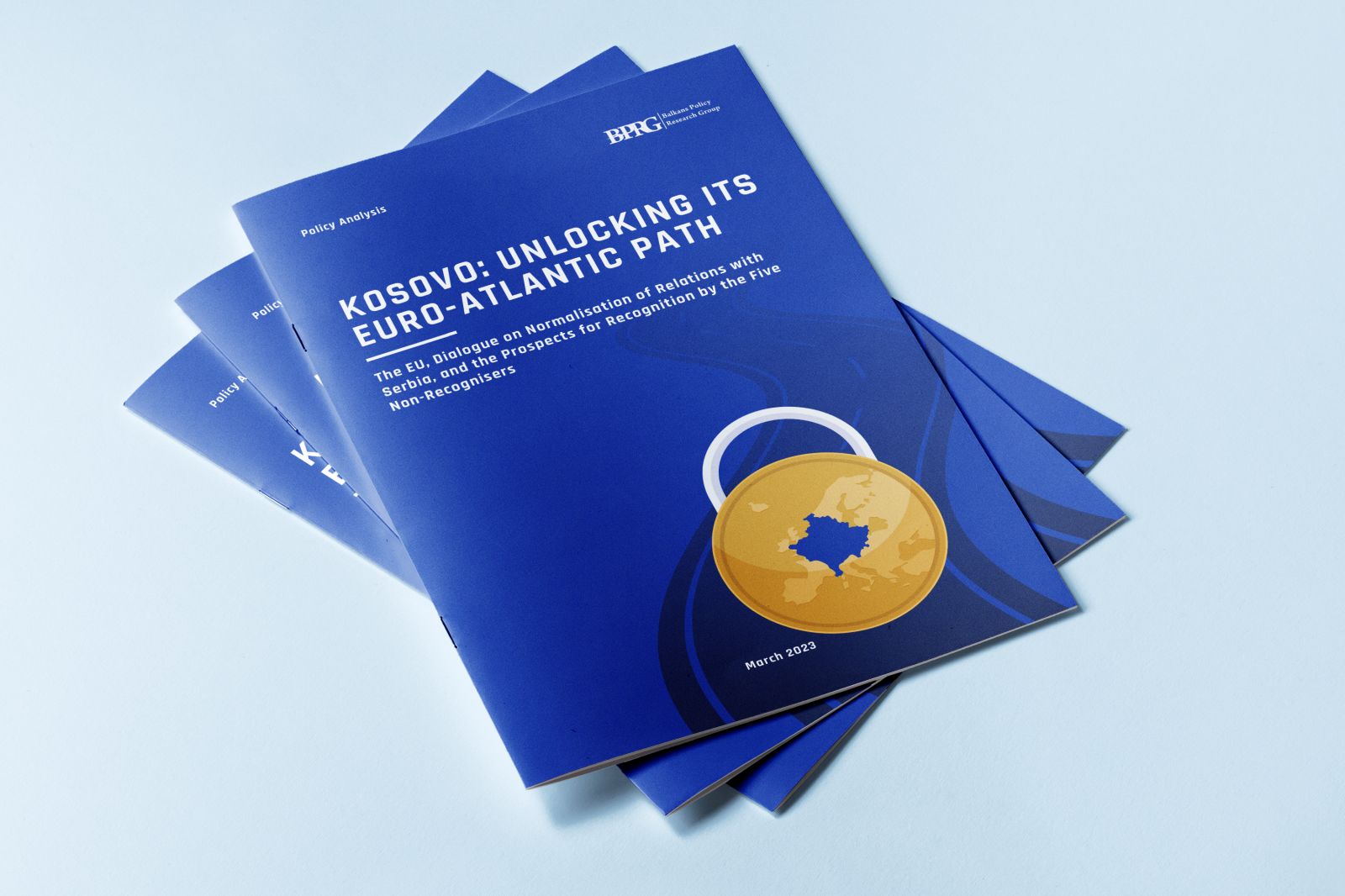Balkans Group new policy report Kosovo: Unlocking its Euro-Atlantic Path The EU, Dialogue on Normalisation of Relations with Serbia, and the Prospects for Recognition by Five European Non-Recognisers, analyses the views of 5 European non-recognisers and the role of the EU according to the Franco-German plan.
Five out of 27 member states of the European Union (EU) have not recognised Kosovo yet. By not recognising it as a state, Cyprus, Slovakia, Spain, Romania, and Greece pose a major obstacle to Kosovo’s Euro-Atlantic aspirations, including the EU and NATO membership. To unlock its Euro-Atlantic prospects, Kosovo is conditioned to normalise relations with Serbia through a legally binding agreement. This will require a combination of political will and diplomatic efforts, particularly from Kosovo, and the EU. The full consent of Serbia for the ‘path to normalisation of relations between Kosovo and Serbia’ plan is critical too.
For the five EU non-recognisers, the bare minimum for reconsidering Kosovo’s independence is reaching a legally binding agreement, which must contain provisions on recognition and must be congruent with international law. Such an arrangement would certainly be sufficient for Greece, Romania, and Slovakia to recognise Kosovo, but it remains unclear if Cyprus, and to a certain extent Spain, would follow suit.
This high threshold has significant implications that can directly impact the pace of the dialogue. While these conditions can serve as an incentive for unlocking the existing stalemate, they also risk adding other layers of complication that could jeopardise the efforts to conclude the process. By highlighting the legally binding element, the EU non-recognisers provide reassurances to the Government of Kosovo to pursue the normalisation centred around mutual recognition. However, since they have granted Serbia the key to unlock prospects for recognition and membership in the EU and NATO, Kosovo risks being placed in a challenging position to either make further concessions or continue the current state of affairs.
With active involvement in the normalisation of relations between Kosovo and Serbia, the EU would now need to give a new impetus to the dialogue. It should robustly engage to design and sequence the process including the signing, implementation and endorsing of the agreement. The EU has a critical role to play and the outcome will depend on its ability to conclude its mission for reaching an agreement between Kosovo and Serbia.
The framework presented as a ‘Path to Normalisation of Relations’, which Kosovo and Serbia have publicly endorsed, could become a legally binding agreement upon ratification in Kosovo’s and Serbia’s parliaments, which is critical for persuading the non-recognisers. The legally binding effect could also be granted upon the implementation, planned to take place no later than six months after the signing, or at least by the end of 2023. While the EU will continue to lead further talks, chair the monitoring committee, and have the last word in assessing the level of implementation, it should conclude this agreement between Kosovo and Serbia as a ‘legally binding’ through its statement and conclusions. Endorsing the legally binding agreement [between Kosovo and Serbia] with new Council Conclusions is critical for the parties to move beyond the dialogue and progress on their EU path. It is also mandatory for the non-recognisers to reconsider their position on the independence of Kosovo. The new Council Conclusions should allow replacing the Council Conclusions [on Kosovo] of February 2008.
Read the full report HERE



